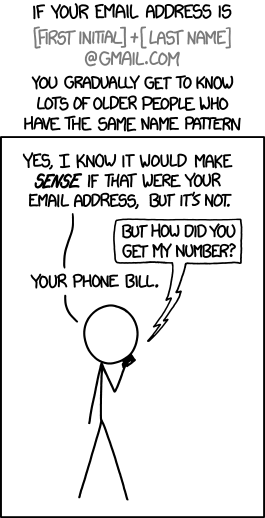Misdirected email

While this does seem to be more common with gmail addresses, it’s not solely limited to gmail. I’ve written about this frequently.
- Don’t leave that money sitting there.
- Sending mail to the wrong person, part eleventy.
- Email verification, what are we verifying.
- Recycled Yahoo addresses and PII leaks.
- Dr. Livingston, I presume.
- No, I’m really not Christine.
- Confirming addresses for transactional mail. See the comments for more examples.
- One letter off. Personal email goes to the wrong address.
There are a lot of cases we hear about where personal information is leaked through misdirected email. Consider how often it happens and no one hears about it.
For marketers, the biggest risk with misdirected email is sending spam to someone who can get that mail blocked by an ISP, major spamfiltering company or blocklist. For companies using email addresses as primary keys for customer databases, the risk is exposing customer information to the wrong people.
I get that address verification is hard. I get it is friction in the signup process. But that shouldn’t really matter when you’re discussing PII.